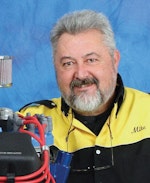This bulletin applies to 2011-2020 Lincoln MKZ Hybrid vehicles. A high voltage (HV) battery charger is required for recovering a discharged FHEV high voltage battery.
When full hybrid electric vehicle (FHEV) powertrains exhibit a no-crank condition, it is important to identify if DTCs are preventing the engine from being cranked and if the high voltage battery must be charged. Discharged HV batteries are typically caused by repeated starting attempts or improper long-term vehicle storage. Base engine issues (example: fuel or ignition) can cause crank no-start conditions and ultimately a no-crank condition. If the high voltage battery becomes sufficiently discharged, DTC P0A7D:00 and or P0B25:00 may be set, resulting in a no-crank condition.
In order to recover a discharged HV battery, shops may request a rental charger. The process includes following an approval process and submitting an online bailment form. Once it is confirmed that the HV charger is required, Midtronics will ship a charger directly to the dealer/shop. Rental and shipping charges apply.
Running a charge cycle will return the HV battery to approximately 50% state of charge (SOC). A 50% SOC will provide approximately 40 cranking attempts at 15 seconds each. Once the HV battery is charged, crank the engine and make sure that spark is present using an inline spark tester. Keep in mind that due to the high cranking speed of hybrid engines, the gas engine may sound like it’s running even if it is only cranking. It is crucial to make sure that the gas engine is actually running as part of the repair. Failure to verify engine operation will result in the HV battery becoming discharged again. Refer to the4 service manual for specific steps/precautions for 2009-2012 MKZ FHEV vehicles.



